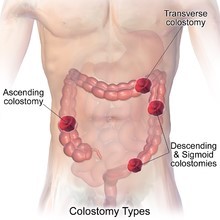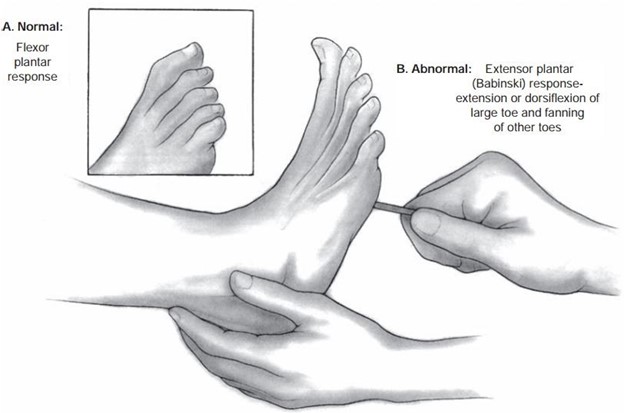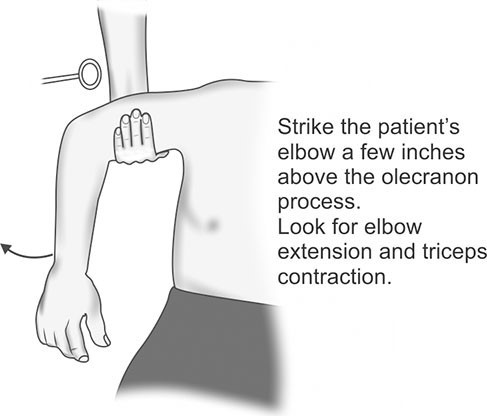A nurse is reinforcing teaching with another nurse about how to change an ostomy appliance for a client who has a sigmoid colostomy.
Which of the following instructions should the nurse include in the teaching?
Create an opening on the skin barrier that is 1.27 cm (0.5 in) larger than the client's stoma
Use a moisturizing soap to clean the skin around the client's stoma
Empty the client's ostomy pouch before removing the skin barrier
Change the client's ostomy appliance 1 hr after breakfast
Correct Answer : C
A. Create an opening on the skin barrier that is 1.27 cm (0.5 in) larger than the client's stoma. The opening on the skin barrier should be cut to fit closely around the stoma, approximately 0.3-0.6 cm (1/8 to 1/4 inch) larger than the stoma size. A larger opening (like 0.5 inches) could expose too much surrounding skin, increasing the risk of skin irritation from contact with the stoma's effluent.
B. Use a moisturizing soap to clean the skin around the client's stoma. Moisturizing soaps should be avoided because they can leave a residue on the skin, which may interfere with the adhesion of the ostomy appliance. The skin around the stoma should be cleaned with mild soap and water, or water alone, and then dried thoroughly before applying the new appliance.
C. Empty the client's ostomy pouch before removing the skin barrier. Emptying the ostomy pouch before removing the skin barrier is a practical step to reduce spillage of stool during the appliance change, making the process cleaner and easier to manage. It also minimizes the risk of contamination of the surrounding area or wound.
D. Change the client's ostomy appliance 1 hour after breakfast. Ostomy appliances are best changed when the bowel is least active, which is usually before a meal or several hours after eating. Changing the appliance shortly after a meal, such as 1 hour after breakfast, may result in more stoma output, making it harder to manage the appliance change.

Nursing Test Bank
Naxlex Comprehensive Predictor Exams
Related Questions
Correct Answer is B
Explanation
The plantar Babinski reflex is assessed by stroking the sole of the foot from the heel towards the toes. A normal response is the flexion or curling of the toes. An abnormal response, known as a positive Babinski sign, is the extension and fanning out of the toes, which indicates an upper motor neuron lesion.

"Place your foot in my hand and I will tap the back of your heel": This instruction is more relevant to testing the Achilles tendon reflex, where the nurse taps the back of the heel to elicit a plantarflexion response.

"Sit on the edge of the bed while I tap your knee": This instruction is more relevant to testing the patellar reflex, also known as the knee-jerk reflex. The nurse taps the patellar tendon just below the kneecap to elicit a reflexive contraction of the quadriceps muscle.

"Relax your arm across your chest and I will test your elbow extension": This instruction is more relevant to testing the triceps reflex, where the nurse taps the triceps tendon to elicit a reflexive extension of the elbow.

Correct Answer is B
Explanation
Veracity refers to the principle of truthfulness and honesty in communication. By truthfully communicating about the adverse effects of the prescribed medications, the nurse is demonstrating veracity. This ethical principle emphasizes the importance of providing accurate information to the client to promote informed decision-making and autonomy.
Justice refers to fairness and equitable treatment, ensuring that individuals receive what they are due and that resources are distributed appropriately. While justice is an important ethical concept in healthcare, it is not directly applicable to the nurse's communication about adverse effects.
Autonomy refers to respecting the right of individuals to make their own decisions and choices regarding their healthcare. While truthfully communicating about adverse effects supports autonomy, autonomy itself is not the specific ethical concept being exhibited in this scenario. Beneficence refers to the ethical principle of acting in the best interest of the client and promoting their well-being. While providing accurate information about adverse effects can be seen as a form of beneficence, it does not directly address the nurse's truthful communication in this specific scenario.
Whether you are a student looking to ace your exams or a practicing nurse seeking to enhance your expertise , our nursing education contents will empower you with the confidence and competence to make a difference in the lives of patients and become a respected leader in the healthcare field.
Visit Naxlex, invest in your future and unlock endless possibilities with our unparalleled nursing education contents today
Report Wrong Answer on the Current Question
Do you disagree with the answer? If yes, what is your expected answer? Explain.
Kindly be descriptive with the issue you are facing.
